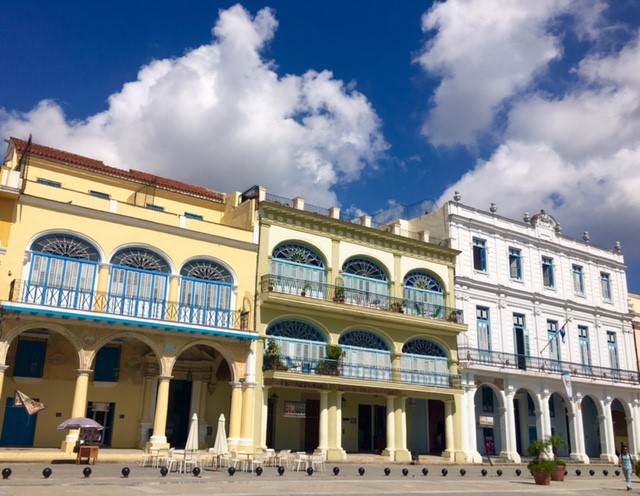 Image courtesy of Enya Gonzalez Guitart
Image courtesy of Enya Gonzalez Guitart
Cuba: The New Peacekeeper?
Colombian President, Juan Manuel Santos, and top commander of the Revolutionary Armed Forces of Colombia (FARC), Timoleón Jiménez “Timochenko”, came together to celebrate a cease-fire and disarmament agreement at a signing ceremony on June 23, 2016 in Havana, Cuba. Both leaders were joined by UN Secretary General, Ban Ki-moon, and five Latin American presidents, in addition to Raul Castro, and special US envoy, Bernard Aronson. The ceremony marked the beginning of the end of the negotiations that began in Havana in 2012, which established Cuba as a guarantor. As the longest running armed conflict in the Western Hemisphere approaches its end with the continued success of the Colombian peace talks, the United States has more reason to integrate Cuba in international negotiations and norms.
Although the deal is not a final peace accord, it ends over 50 years of armed conflict in Colombia. The conflict has killed over 220,000 people, and the UN’s High Commissioner for Refugees estimates that there are over 6 million internally displaced persons in Colombia. Recognized as a Foreign Terrorist Organization since 1997 in the US, FARC has served as “Colombia’s principal illegal armed group,” accounting “for about 60 percent of the cocaine exported from Colombia to the United States,” according to a 2009 report by the US Government Accountability Office (GAO). FARC’s lasting presence poses a threat not only to Colombia, but to the rest of Latin America and the US.
Assisting Colombia’s counternarcotic and counterterrorism efforts has been a central component of the US’s commitment to Plan Colombia. In 2000, the US agreed to provide both military and nonmilitary support for Plan Colombia, and has since then expanded. Throughout the early 2000’s, Colombia witnessed significant improvements in their national security, including a decrease in homicides, kidnappings and terrorist attacks. While there continues to be room for improvement, the signing of the cease-fire and disarmament agreement further advances Colombia’s efforts to combat drug trafficking and terrorism. Moreover, the agreement can be viewed as a US foreign policy success, given the longstanding American commitment and interest in, “promoting security, stability, and prosperity in Colombia,” and in the rest of the region.
Despite the underlying ideological similarities between the FARC and the Castro regime, Cuba has demonstrated its commitment to promoting peace in Colombia as the host of the peace negotiations. At the ceremony, Raul Castro stated:
“Peace will be a victory for the entire Colombia, but also a victory for all of Our America … The end of the armed conflict in Colombia will be a new evidence of the rock-solid commitment of our peoples against the use and the threat of use of force and in favor of the peaceful settlement of controversies.”
The US and Cuba have the opportunity to collaborate to further support peace in Colombia as the country moves forward in finalizing an accord. After the FARC fighters transition to designated zones to turn in their arms, ratification of the accord will depend on a national referendum. However, an opposition movement led by former Colombian President, Álvaro Uribe, poses a challenge for the Santos administration. While appealing to different voters, the US and Cuba can work to help Colombia’s efforts to promote the peace accord and ensure voter turnout for the referendum.
While negotiations between the FARC and the Colombian government are promising, the country runs the risk of having its second rebel movement, the National Liberation Army (ELN), filling the void left by the FARC. Although the Colombian government announced that it would be holding formal peace talks with the ELN, a final deal is not right around the corner as, “tensions have remained high over the ELN, which has continued committing attacks and abductions.” Along with other South American countries, Cuba will be hosting the talks and will act as one of the guarantors for the negotiations. Given the US’ own interest in a successful accord, it should integrate Cuba in its own efforts to encourage peace in Colombia, while providing assistance in Havana to host the talks.
Cuba’s involvement in the Colombian peace talks indicates an acknowledgment of human rights and disapproval of violence, despite the situation within Cuba itself. Integrating Cuba into future talks may encourage internal change by forcing the government to consider its own shortcomings, and encouraging it to implement policies that reflect its external stance on these issues. Through continued engagement with Cuba, the US will be better able to spread its values and grow as a leader.





